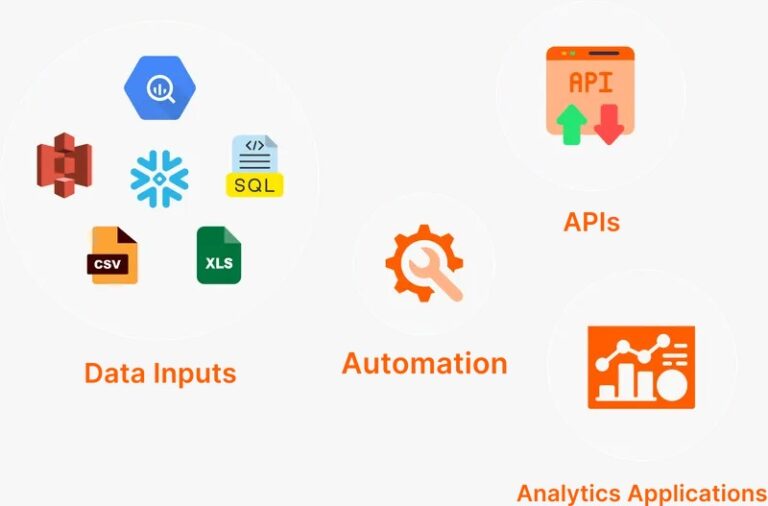The market is evolving more quickly than ever. Unexpected trends, shifts in customer behavior, and new technology all have an impact on business. Businesses that don’t adjust lose clients and fall behind more agile competitors.
Integrating ai into business helps not just to react to changes, but to predict them. AI algorithms analyze vast amounts of data, uncover hidden patterns, and help businesses make strategic decisions faster and more accurately.
Data Analysis and Trend Forecasting
AI’s capacity to evaluate vast amounts of data and spot patterns that are hard for humans to see is one of its main benefits. Machine learning makes it possible to forecast consumer behavior, product demand, and emerging market trends.
E-commerce businesses, for instance, employ AI analytics to forecast ahead of time which goods will be in high demand during the next season. To provide precise forecasts, AI examines search terms, social media, and past purchases.
Personalization: Tailored Offers for Each Customer
Personalized marketing is essential, not simply a fad. AI enables firms to provide customers with precisely what they are interested in.
Businesses may now automatically propose things that customers actually need thanks to machine learning. This is true for push alerts, email newsletters, and even customized content on websites in addition to online retailers. By enabling AI-driven customisation without the need for extensive technical knowledge, platforms like as RapidCanvas make AI solutions affordable for enterprises of all sizes.
Marketing and Advertising Automation
AI improves advertising precision and helps in campaign optimization. In order to improve the effectiveness of advertisements, machine learning algorithms evaluate the audience and decide who, when, and where to display them.
AI is also capable of producing advertisements automatically, including graphics, videos, and text-to-speech options. In addition to saving marketers time and money, this enables rapid testing of various creatives.
Additionally, A/B testing has advanced to a new level. AI automatically modifies the approach and chooses the best solutions after analyzing the outcomes of advertising campaigns in real-time.
Optimization of Business Processes with AI
AI helps not only in marketing but also in business management. Chatbots and voice assistants are replacing call centers, providing round-the-clock customer support. AI in logistics helps forecast demand and optimize warehouse inventory and in HR analyzes candidates’ resumes, predicts their success, and even helps manage employee motivation.
Working with Reputation and Feedback
AI helps brands manage their online reputation. Algorithms analyze reviews, comments, and mentions on social media, identifying negative trends so that companies can respond promptly.
For example, if complaints about the service start appearing online, AI can automatically notify the support team so they can resolve the issue before it damages the brand’s reputation.
Conclusion: How Can Businesses Implement AI?
To keep up with competitors, companies must already start implementing AI tools into their operations:
- use AI for content personalization and recommendations;
- implement automated tools for advertising and marketing;
- keep up with AI trends and test new solutions.
AI is not the future, but a reality. Those who start using it now will gain a competitive advantage and be able to adapt to market changes more quickly.

